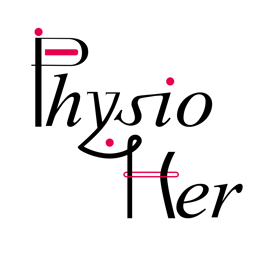Women's Health in Physiotherapy
We are sharing this article with the hope of giving you an overview of Physiotherapy and Women's Health.
GENERALLEARNPATIENTSWOMEN'S HEALTH
7/1/20244 min read


Understanding Women's Health in Physiotherapy
Women's health in physiotherapy is a specialized area that focuses on addressing the unique health concerns of women throughout various stages of life.
From adolescence, through pregnancy, to menopause and beyond. We as physiotherapists tailor their treatments to meet the specific needs of women at each stage. This holistic approach ensures that physical, emotional, and psychological aspects are considered, providing comprehensive care.
Women's Health Physiotherapy during Adolescence
During adolescence, physiotherapy can manage conditions such as menstrual pain, pelvic floor dysfunction, and sports-related injuries. Our focus is mainly on rehab and on educating young women about their bodies with the aim to promote healthy habits to prevent future issues.
As women transition into adulthood and potentially face pregnancy, physiotherapists offer support for prenatal and postnatal care, including managing back pain, pelvic girdle pain, and preparing the body for childbirth through tailored exercise programs.


Women's Health Physiotherapy around Pregnancy
Pregnancy brings unique challenges, and physiotherapists work closely with expectant mothers to maintain health and well-being. Postnatal care focuses on recovery, addressing concerns such as diastasis recti (abdominal separation), pelvic floor rehabilitation, and overall physical recovery. The goal is to help new mothers regain strength and functionality, enabling them to care for their newborns effectively.


Women's Health Physiotherapy near Menopause
As women approach menopause, physiotherapy assists in managing symptoms such as pelvic pain, urinary incontinence, and osteoporosis. Physiotherapists provide strategies to maintain bone health, improve pelvic floor function, and enhance overall quality of life, considering the hormonal changes and their impact on physical health.
Women's health physiotherapy benefits women of ALL ages. Whether dealing with chronic conditions, recovering from surgery, or seeking to improve overall well-being, physiotherapy offers tailored interventions. By addressing physical, emotional, and psychological aspects, physiotherapists ensure a holistic approach to women's health, empowering women to lead healthier, more active lives.


Suffering from any of the conditions mentioned above?
Get in touch with us!
Call Us on the 5705-4805 or Open the Camera on your phone Scan the QR code below to WhatsApp us!
The most frequent cases of Women's Health Issues
During and after pregnancy, women often experience pain in the lower back and pelvic area due to additional weight and hormonal changes. Physiotherapy can alleviate this pain through manual therapy techniques designed to reduce muscle tension and improve alignment. Therapeutic exercises are also prescribed to maintain strength and flexibility, making the pregnancy journey more comfortable and manageable.
Postnatal recovery is another critical phase where physiotherapy proves invaluable. After childbirth, many women face challenges such as weakened abdominal muscles and pelvic floor dysfunction. Physiotherapists create individualized exercise programs to restore core strength, enhance pelvic stability, and support the body's recovery process. This comprehensive approach not only aids in physical recovery but also helps in managing postnatal depression by promoting overall well-being.
Menopausal symptoms, such as joint pain and reduced bone density, can significantly impact a woman's quality of life. Physiotherapy offers targeted interventions like weight-bearing exercises and mobility training to mitigate these symptoms. These exercises help maintain bone health, enhance joint flexibility, and reduce the risk of osteoporosis.


Women's Health; Prevention & Education
Physiotherapy plays a crucial role in addressing various women's health issues, offering tailored treatment approaches to enhance overall well-being and quality of life. One primary area of benefit is the management of pelvic floor dysfunction, which can lead to urinary incontinence and pelvic pain. Physiotherapists employ pelvic floor exercises, also known as Kegel exercises, to strengthen the muscles of the pelvic region, improving bladder control and reducing discomfort.
In addition to addressing specific health conditions, physiotherapists provide education on lifestyle modifications. They guide women on ergonomic practices, proper body mechanics, and healthy habits that support long-term well-being. By improving mobility, reducing pain, and enhancing physical function, physiotherapy significantly contributes to a better quality of life.


Seeking Professional Support
The scope includes all health concerns of women: incontinence, pelvic/ vaginal pain, prenatal and postpartum musculoskeletal pain, osteoporosis, rehabilitation following breast surgery, lymphedema, education prevention, wellness and exercise.
Reach out to your nearest physiotherapist to assist you in your journey.


In conclusion, understanding and addressing the link between physiotherapy and emotional codependency can lead to healthier, more balanced lives.
Incorporating physical activity can help us become less co-dependent.Physical activity allows more time for self love and self growth.Physical activity will create a proper standard and healthy mindset for any relationship.
By integrating physical activities into daily routines and seeking professional help, individuals can manage codependent behaviours more effectively and improve their overall quality of life.
Book a consult with us!
Tired of the pain and wanna improve your well being?
Call/ Text us now! We are ready to help!
Hours
Mon - Fri: 9am - 5pm
Sat: 9am - 1pm
Sun: Closed
Address
MU, Ylang Ylang Ave, 71608
Call / Text
5705 4805


